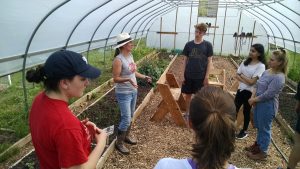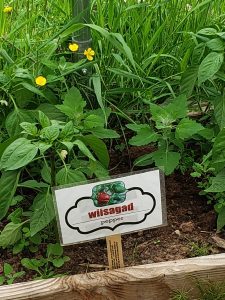 There are many paths to strengthening cultural resiliency within Wisconsin’s Native Nations. The UW Extension Native Nations Team is focusing on Tribal food sovereignty education as the framework for building cultural resiliency within Wisconsin’s Native Nations because of the holistic way this issue connects people to the land, language, health, and culture.
There are many paths to strengthening cultural resiliency within Wisconsin’s Native Nations. The UW Extension Native Nations Team is focusing on Tribal food sovereignty education as the framework for building cultural resiliency within Wisconsin’s Native Nations because of the holistic way this issue connects people to the land, language, health, and culture.
Food sovereignty provides an educational framework for connecting Traditional Ecological Knowledge (TEK) from Tribal communities about growing, harvesting, and sharing plants for food and medicine; with Scientific Ecological Knowledge (SEK) from University sources about techniques for local food production, preservation, food resource management, and healthy food choices to sustain food systems.
Food sovereignty connects to broader issues such Tribal sovereignty and treaty rights to hunt, fish, and gather traditional foods; while providing place-based options for responding to impacts on those rights from environmental issues like climate change. As Tribal leaders’ state: “If you don’t have clean water, clean air, and clean land, you won’t have sovereignty.”
Through our partnership with Wisconsin’s Tribal Nations, we seek to:
- Identify training, resource, and implementation opportunities to strengthen the sustainability of food systems while caring for the land and maintaining Tribal sovereignty,
- Build Tribal food sovereignty programmatic partnerships between UW Madison and Extension, and Tribal Partners to support Tribal food sovereignty programs and provide resources to the communities they serve,
- Develop best practices in developing and outreaching Tribal food sovereignty system resources,
- Plan, hold and evaluate a Wisconsin Tribal Food Sovereignty Summit for Extension educators and Tribal partners
- Create network of trained and engaged Extension and Tribal partners supporting Tribal food sovereignty initiatives
- Evaluate our Tribal Food Sovereignty initiative and make recommendations for building more sustainable Tribal food systems and outreaching those strategies for non-Tribal communities.



